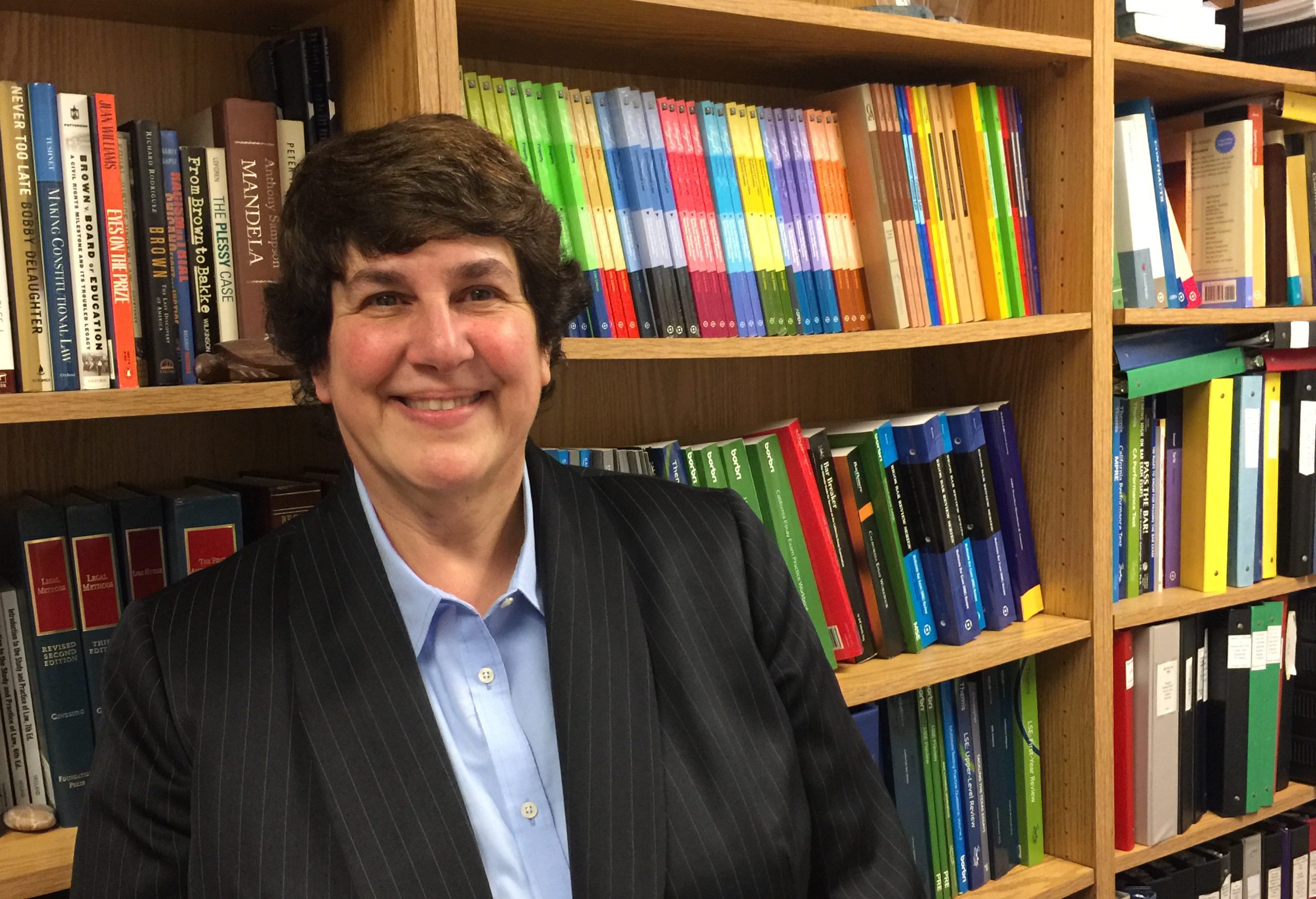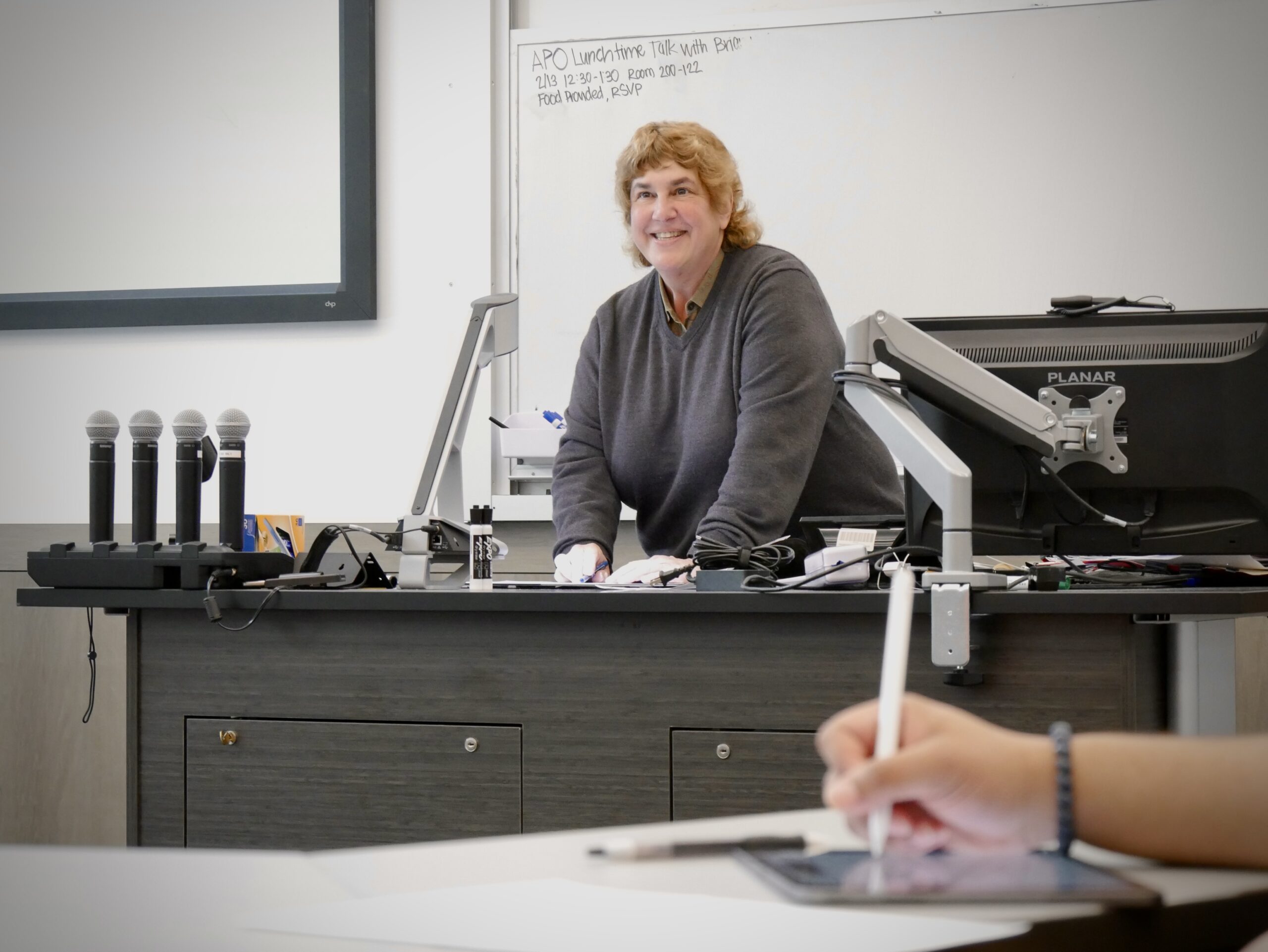Prof. Laurie Zimet Marks 40 Years of Helping Law Students Succeed

During her four-decade career, Professor Laurie Zimet ’82 helped establish the field of law school academic support and launched groundbreaking programs to help law students thrive.
Over the last 40 years, UC Law SF Professor Laurie Zimet ’82 has helped change the way law schools teach, evaluate, and support the success of law students.
Known nationally as a “founding mother” of law school academic support, she helped pioneer a new field of legal education and won numerous accolades along the way.
But it wasn’t fame or notoriety that propelled her to do this work. Rather, it was a deep-seated commitment to equity and the idea that every law student should get a fair shake at unlocking their potential.
“In my mind, almost anybody who is admitted to law school has the potential to succeed,” she said. “I think students deserve to understand what’s expected of them.”
Over her four-decade career, Zimet has worked to understand the different ways that people learn – whether through seeing, doing, or talking and working with others. Students in her class get exposed to all three methods. She uses visual aids and team assignments to drill down concepts, making them stick in the brains of her students.
“The more I talk, the less they learn,” she said. “The more they do, the better they learn.”
Using relatable concepts to explain complex ideas, she tells students that “facts are lonely,” and the distinct facts from each hypothetical case must be placed in the right neighborhoods (clusters of law), houses (causes of action), and rooms (sub-issues).
“I’ve started using her method in other classes that don’t call for such deep analysis,” said Connor James ’25, a student in Zimet’s torts class. “It helps me memorize it. I don’t have to cram. I can now tell you anything about defamation. It’s like an art.”
Zimet, a UC Law alum who grew up in Rockland County, New York, isn’t shy about letting people know that as a student, she didn’t like law school. The reason? She learned about different statutes and cases, but no one showed her how to put it all together in a clear and understandable framework to apply to problems.
“It felt very much like a ‘hide the ball’ kind of thing,” she said.
Zimet recalls “cutting her teeth” as a tutor for bar exam repeaters in the mid-1980s before co-organizing national conferences on law school academic support in the late 1980s – a time she refers to as “the wild west” of academic support when only a handful of law schools had such programs in place.

Professor Zimet always asks students to articulate what they learned that will help them succeed.
She is a founding member of the Academic Support Section of the American Association of Law Schools (AALS) and was honored for her contributions with an Academic Support Award from AALS in 2020.
Professor Jennifer Freeland, Associate Dean for Academic Skills at UC Law SF, said whenever she attends national conferences on academic support, she is bombarded with comments from fellow educators about how envious they are of her closeness to Zimet, a living legend in the field.
“It felt a bit like attending the Oscars having been in a movie with Meryl Streep,” Freeland said. “She is nationally famous, and those in the profession are either secretly or openly jealous that you were able to work with her.”
Zimet has spent 31 years of her four-decade career at UC Law SF. She founded UC Law’s Academic Support Program in 1996 and developed a Discussion Group Leader program, which involves one-on-one advising for first-year law students and group sessions led by upper-division law students.
UC Law Provost & Academic Dean Morris Ratner said Zimet has helped thousands of law students adapt to the legal education environment, has taught specialized skills and doctrinal classes, has worked tirelessly with students needing one-on-one support, and has mentored dozens of colleagues, freely sharing her expertise and wisdom.
“She has a national profile as a groundbreaking pedagogical innovator, and peer schools regularly turn to her to benefit from her expertise,” Ratner said. “Her energy and enthusiasm for teaching and her care for students are defining features of her impactful professional life.”